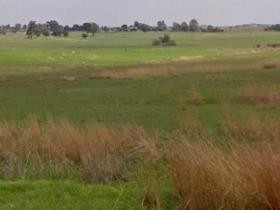Grazing and its Impact on Grass Physiology
- Jan 19, 2016
- 1 min read
Why does high density grazing work? If you’re curious, and happen to be near Mokopane, South Africa on February 16th, you may want to attend the Farmers Day at Witpoort Farm. The workshop begins at 8:30 AM, and features retired Michigan State University educator and Holistic Management Certified Educator Dr. Ben Bartlett, from Traunik, Michigan. Having traveled extensively around the world educating and observing the significant impacts of Holistic Management and high density grazing, Ben will spend the day discussing his findings, observations, and experiences as a farmer and educator. A significant piece of the puzzle is soil microbiology and how it benefits from high density grazing, which allows more water penetration into the soil, with plants grazed more evenly. In the growing months, the land can produce the maximum amount of high quality forage on an increasing or sustained basis. In the non-growing months there is adequate forage and/or cover for livestock and wildlife. Retired from Michigan State University’s Extension Service as a livestock educator, Ben became a Holistic Management Certified Educator in April 2005, and has been active in activities such as improved animal handling and grazing management. Ben is also the owner and operator of a 400-sheep and 200-grazing cattle farm operation located in Michigan’s Upper Peninsula. For further information or to RSVP, contact Wayne Knight – owner of Witpoort Farm and Holistic Management Certified Educator at 082.805.3274 by February 2nd. Wayne can also be reached at wayne@theknights.za.net.

